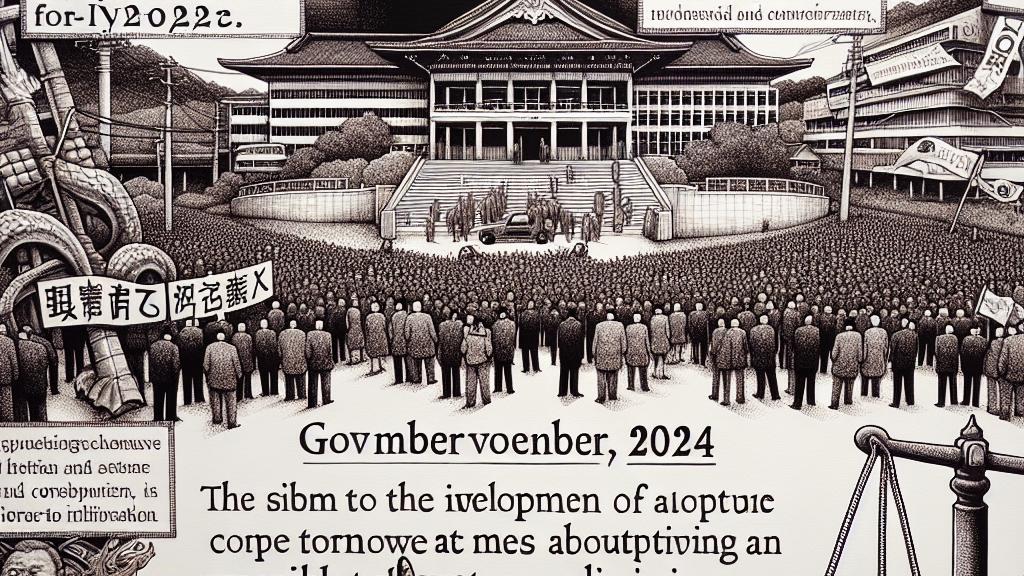Issues Surrounding Merchu in the Hyogo Prefecture Gubernatorial Election
Overview
- A scandal erupts involving Merchu's role in the recent Hyogo gubernatorial election.
- Public backlash intensifies over allegations of election bribery and misconduct.
- Consequences from this incident could drastically reshape Japan's political landscape and restore or diminish trust in democratic processes.

The Gubernatorial Election: Merchu's Fateful Involvement
On November 17, 2024, the Hyogo Prefecture gubernatorial election took center stage, but not for the usual reasons. The drama unfolded with the revelation that Merchu, a company contracted by former governor Motohiko Saito, was allegedly involved in bribing campaign workers. Kaede Orida, the president of Merchu, openly admitted to this practice, which constitutes a clear violation of Japan's Public Election Law. This shocking confession not only stirred public outrage but also ignited fears about systematic corruption within the electoral system. For many, this was a wake-up call about the vulnerabilities that could undermine the very foundation of democracy, a system designed to be equitable and just.
Understanding Election Bribery: A Closer Look
Delving into the complexities of election bribery reveals alarming insights. Under Japanese law, compensating campaign staff beyond established limits can lead to serious legal repercussions, reflecting a crucial distinction between lawful campaign expenses—like promotional material and online advertisements—and illegal payments to campaign aides. Take, for instance, the stark contrast between a rich candidate who employs a legion of paid professionals to spread their message and a grassroots candidate relying solely on enthusiastic volunteers—the disparity is not just unfair; it is fundamentally damaging to the democratic process. Such scenarios underline the necessity for clear boundaries to ensure that elections reflect true public sentiment rather than the influence of wealth. It's essential to acknowledge that allowing money to dictate political outcomes could usher in an era where only the affluent can compete, leading to a homogeneous political landscape devoid of diversity and genuine representation.
Public Outcry and Implications for Democracy
In the wake of this scandal, public reactions have varied widely, with social media ablaze with outrage against the alleged misconduct by Merchu. Citizens find themselves grappling with a profound distrust in the political system, questioning how officials can permit such unethical practices. Analysts are raising alarms; if left unchecked, these occurrences may not only taint this election but also discourage voter participation across the nation. Imagine a scenario where citizens withdraw from the electoral process, believing their voices do not matter in a system that appears corrupted by financial interests. Such outcomes could lead to a government that is not representative of, or accountable to, the populace. This incident is not just a localized issue; it has far-reaching consequences that compel us to reconsider and reinforce the regulations that protect electoral integrity. The time has come for voters to unite, demand reform, and insist on an electoral environment characterized by fairness, transparency, and respect for all citizens. As citizens, we must ask ourselves: how can we ensure that our democracy remains vibrant and representative in a landscape fraught with challenges?

Loading...